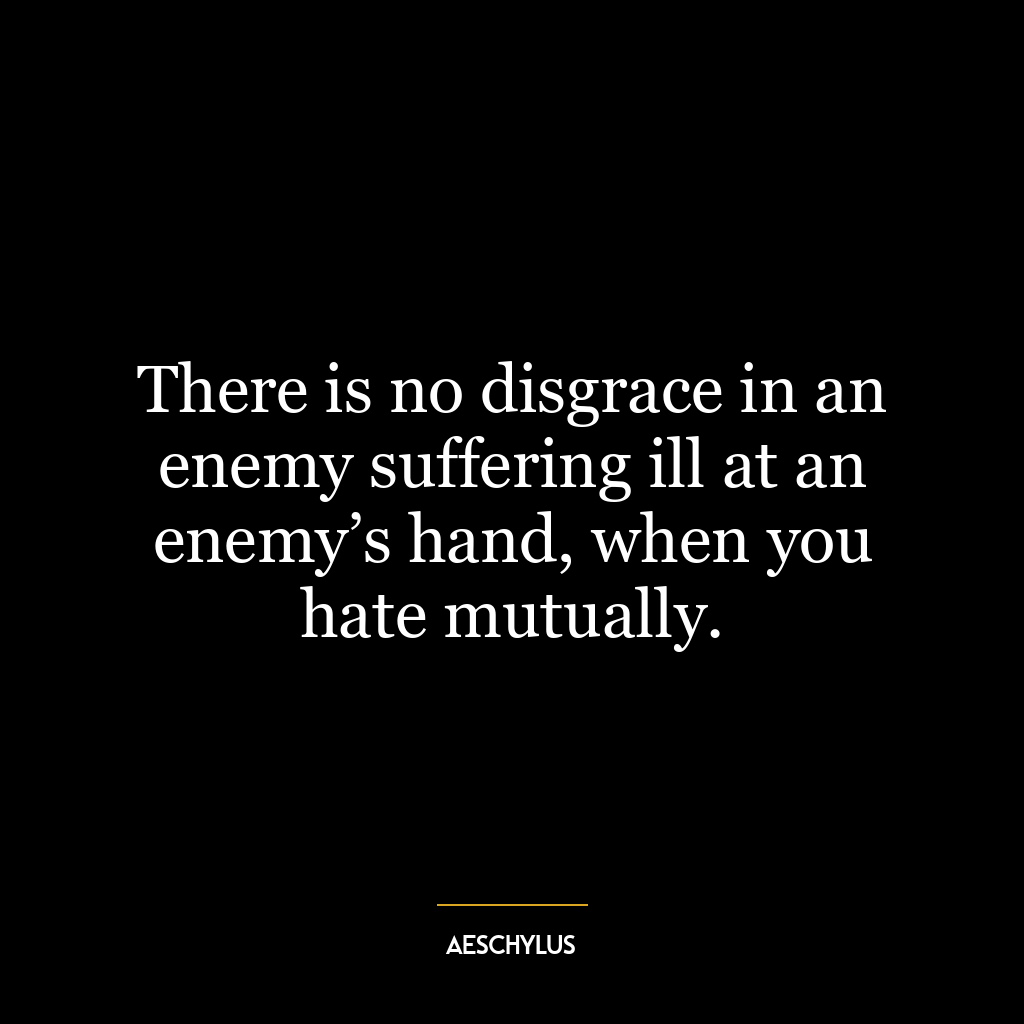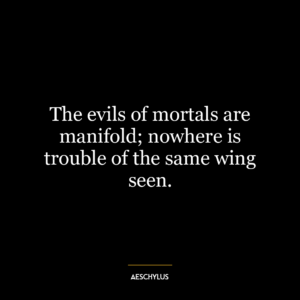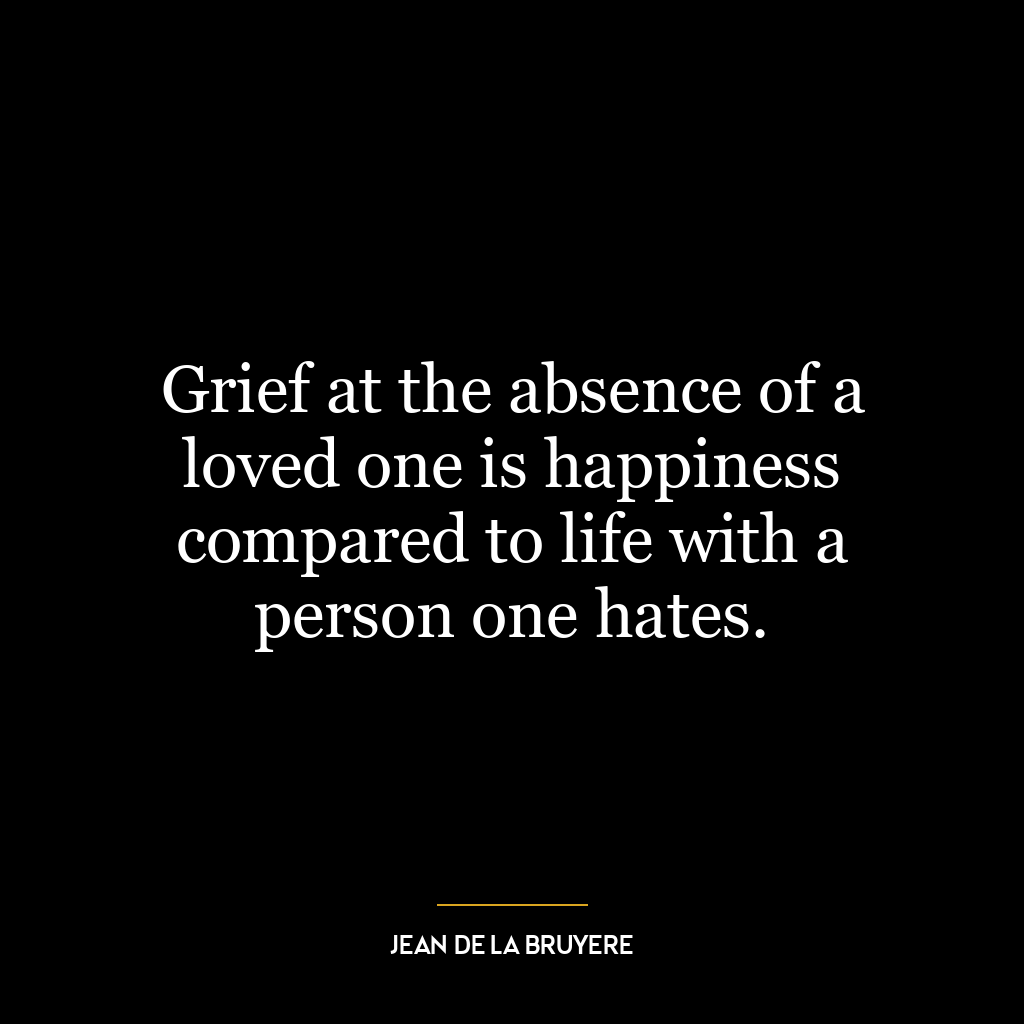There is no disgrace in an enemy suffering ill at an enemy’s hand, when you hate mutually.
This quote by Aeschylus essentially conveys that when two parties are at odds with each other, it is not shameful or dishonorable for one to inflict harm on the other. This is because both parties share a mutual hatred or enmity. The quote suggests that in the context of a conflict, causing suffering to an enemy is not only expected but also justified.
This perspective, however, should not be interpreted as a promotion of violence or harm. It is more about the acceptance of the reality of conflicts, whether they are personal, social, or political. When two entities are in a state of enmity, they are likely to act against each other’s interests. It’s a reflection on the nature of conflict and the actions it provokes.
Applying this idea in today’s world, it can be seen in various spheres of life. In politics, for instance, political parties often work to thwart their rivals’ agendas. In business competition, firms strive to outdo each other, sometimes employing aggressive strategies that may harm their competitors. In personal development, this quote might represent overcoming personal obstacles or negative aspects of oneself, which can be seen as the ‘enemy’. The ‘suffering’ inflicted on these negative aspects is necessary for growth and improvement.
However, it’s important to remember that this quote should not be used to justify harmful actions. Instead, it should serve as a reminder that conflict is a part of life. It is how we handle these conflicts, and the actions we take, that truly define us. Being aware of this can help us navigate through life’s challenges more effectively.















